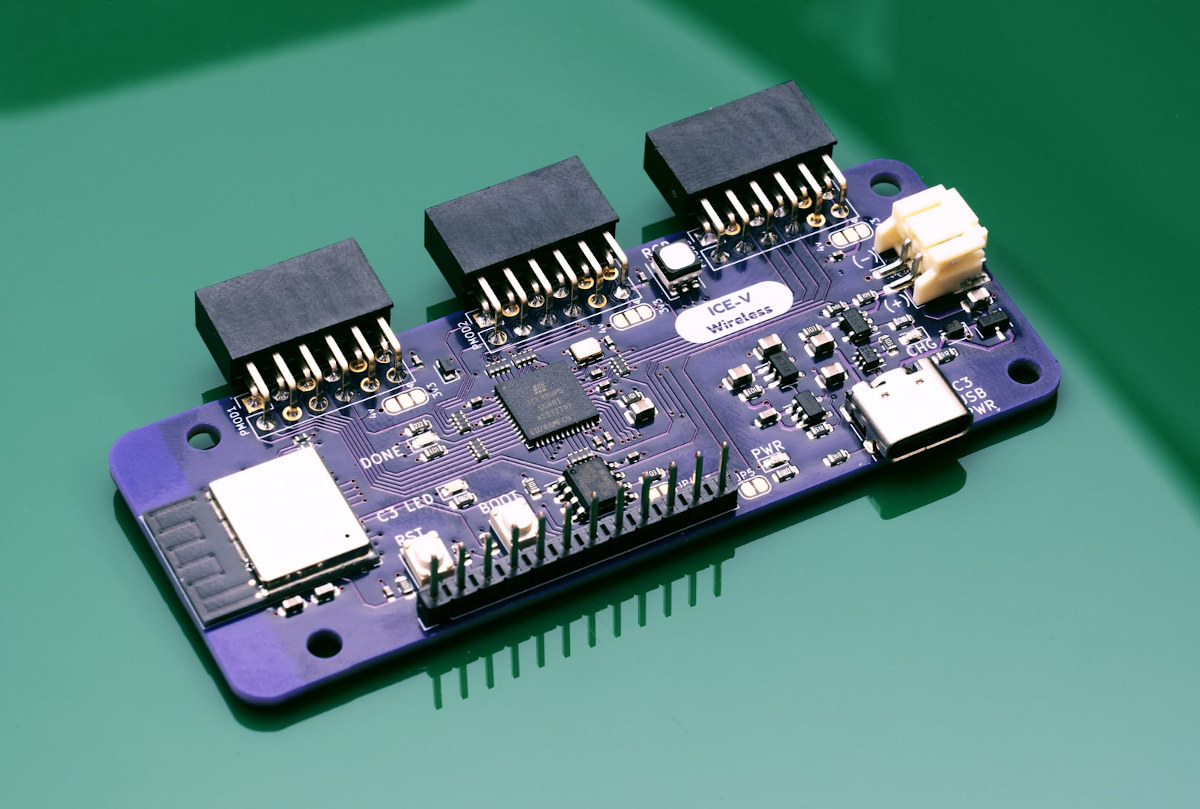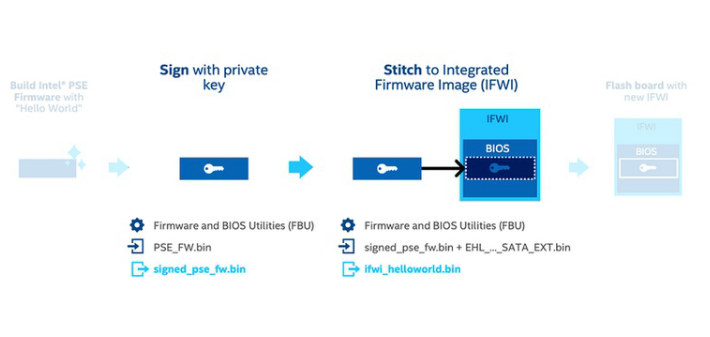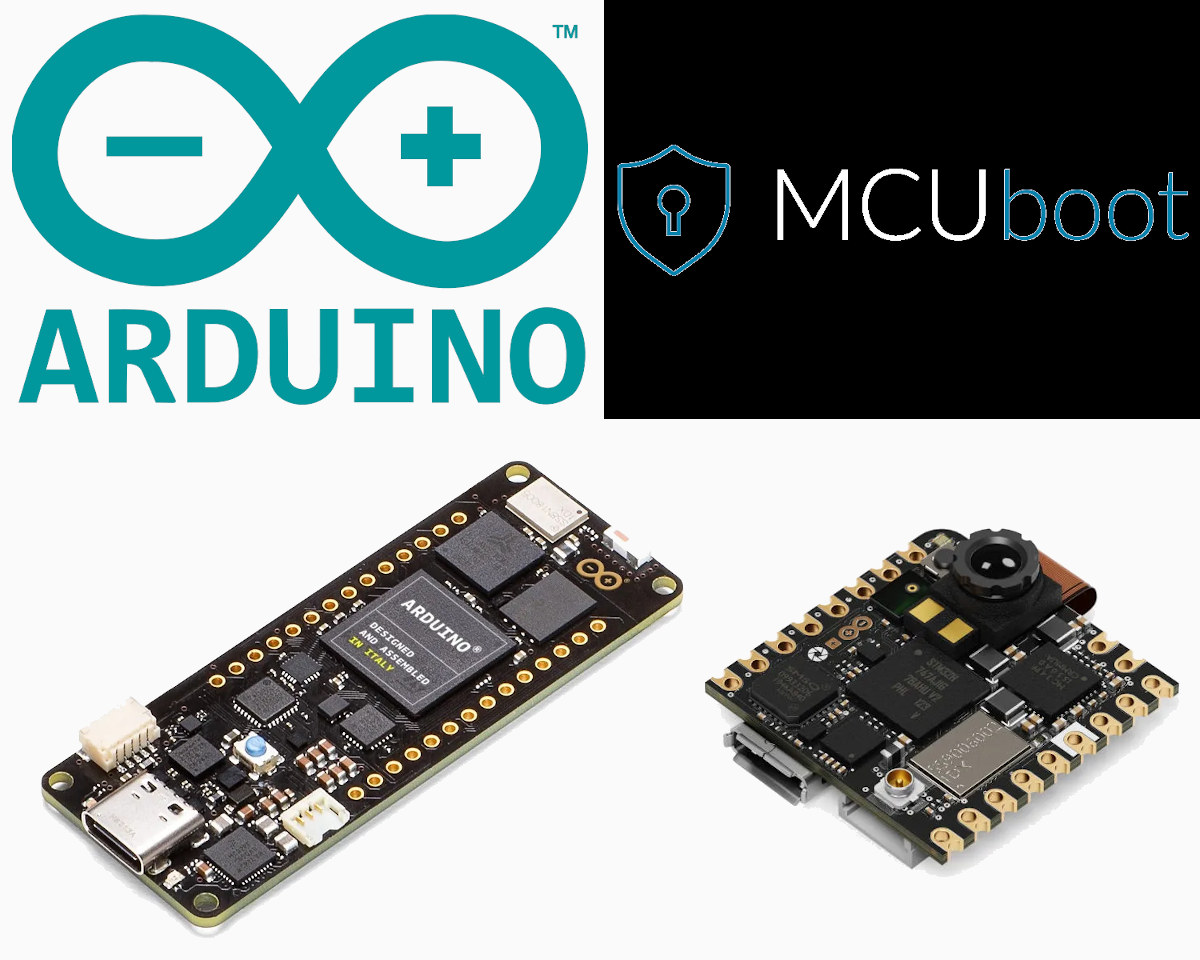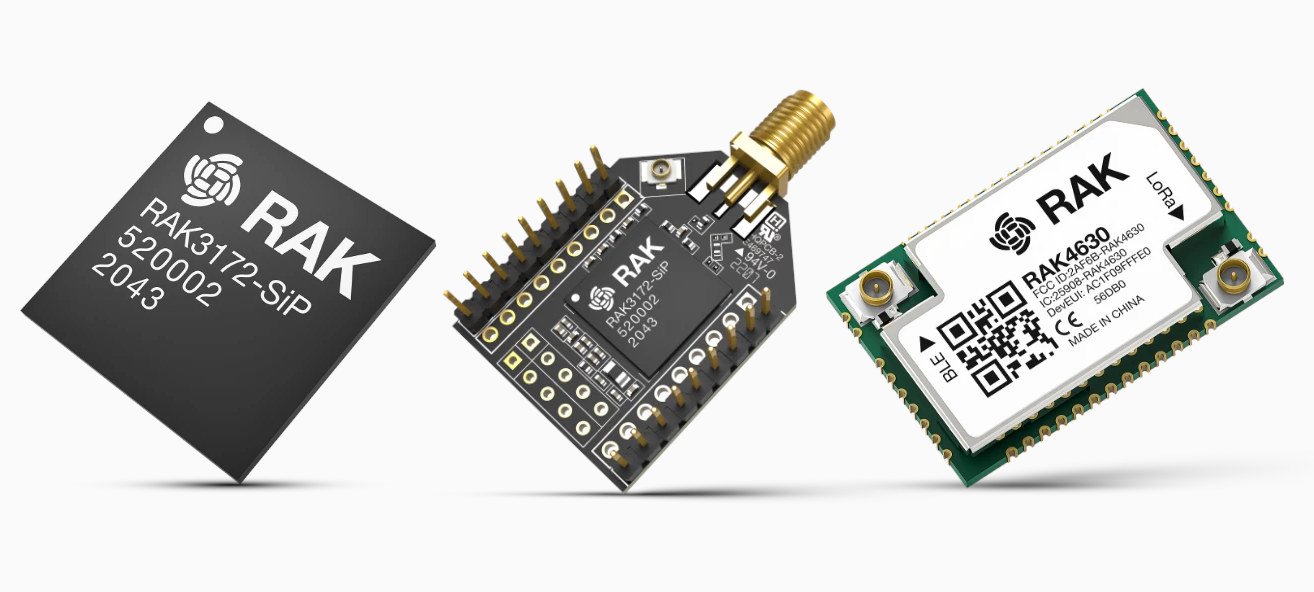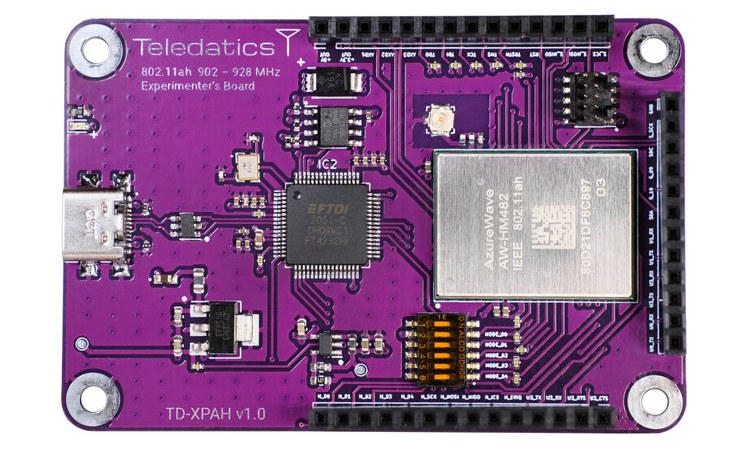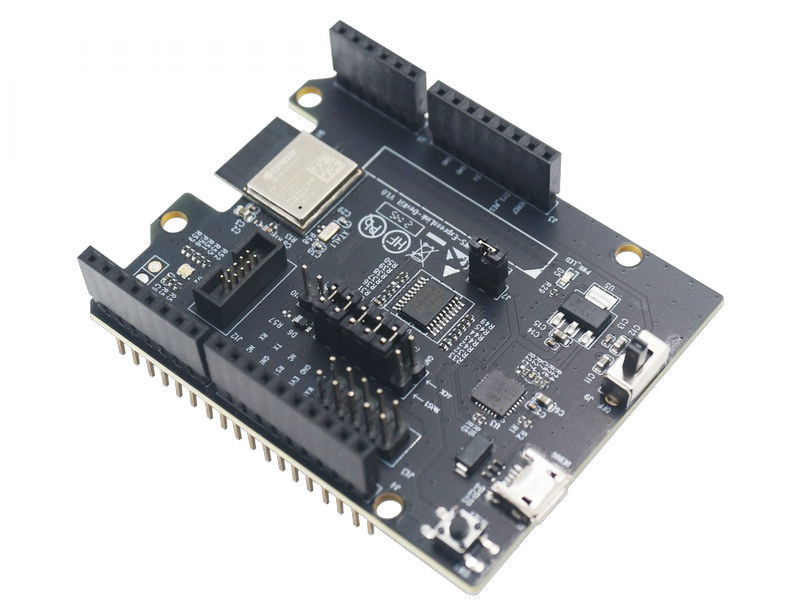Lattice Semi ICE40 boards are pretty popular notably thanks to the availability of open-source tools. ICE-V Wireless is another ICE40 UltraPlus FPGA board that also adds wireless support through an ESP32-C3-MINI-1 module with WiFi 4 and Bluetooth LE connectivity. Designed by QWERTY Embedded Design, the board also comes with 8MB PSRAM, offers three PMOD expansion connectors, plus a header for GPIOs, and supports power from USB or a LiPo battery (charging circuit included). ICE-V Wireless specifications: FPGA – Lattice Semi ICE40UP5K-SG48 FPGA with 5280 LUTs, 120 Kbits EBR RAM, 1024 Kbits PSRAM External RAM – 8MB PSRAM Wireless – ESP32-C3-MINI-1 module with 2.4 GHz WiFi 4 and Bluetooth LE through ESP32-C3 RISC-V processor, 4MB flash. USB – 1x USB Type-C port for power, programming, and JTAG debugging of the ESP32-C3 module Expansions 3x PMOD connectors connected to the FPGA I/O connector with 7x ESP32-C3 GPIO lines (serial, ADC, I2C) and […]
Intel releases SDK for Cortex-M7 PSE found in Elkhart Lake processors
Elkhart Lake processors integrate the Intel Programmable Services Engine (Intel PSE) offload engine for IoT workloads powered by an Arm Cortex-M7 microcontroller that handles real-time IO control using GPIO, I2C, and/or UART interfaces, and supports functions such as remote, out-of-band device management, network proxy, embedded controller, and sensor hub. Until now the firmware was only provided as a closed-source binary, and Coreboot developers published an open letter to open the source code for the PSE firmware last December, and it’s been successful with Intel releasing the Intel PSE SDK based on Zephyr OS. The SDK combines open-source components (code samples, services, etc…) released under a permissive Apache 2.0 license (“License A”), and closed-source libraries and tools released under an Intel license (“License B”) allowing the redistribution and use in binary form, without modification. You’ll find everything on Github including documentation explaining how to get started with the Zephyr SDK, the […]
Arduino releases secure bootloader based on MCUboot
Arduino has released a new bootloader based on MCUBoot to increase the range of features and firmware safety of Arduino products, with the first release targetting STM32H7 based Arduino Portenta and Nicla Vision boards from the Arduino Pro family. The release focuses on Arduino Mbed OS-based boards, but MCUboot is OS agnostic, and should also work with Zephyr, Nuttx, and Apache mynewt. The company has also made sure that the transition is easy and reused the existing OTA firmware upgrade process in place on Arduino boards. MCUboot Arduino highlights: Signed and encrypted updates – MCUboot has support for encrypting/decrypting images on-the-fly while upgrading. It will also check if the computed signature is matching the one embedded in the image before booting a sketch. Confirm or revert updates – After an update, the new Sketch can update the content of the flash at runtime to mark itself as OK. If everything […]
RAKwireless adds more Wisduo and Wisblock modules, launches WisToolBox configuration tool for IoT devices
RAKwireless have launched several Wisduo wireless modules, a dozen of Wisblock modules for IoT prototyping, updated WisDM, WisGateOS, and RUI3 software, and introduced WisToolBox mobile/desktop configuration tool for IoT devices as part of their spring launch 2022 even entitled “Empowering the Innovators: Making IoT your own”. Three new Wisduo modules RAK3172-SIP WisDuo SIP based on STM32WLE5 Wireless SoC with LoRa connectivity. Compared to the original RAK3172, it offers more IO pins, integrates a TCXO, and comes in a smaller size. The module supports LoRa P2P and complies with Class A, B, & C of LoRaWAN 1.0.3 specifications. Cost: $5.99. WisDuo RAK3272-SiP – That’s a breakout board for the RAK3172-SiP System-in-a-Package module for LoRaWAN and allows easy access to all pins via 2.54mm pitch headers. RAK4630 WisDuo Stamp Module – This module supports both LoRa/LoRaWAN and BLE 5.0, and comes with RUI V3 (RUI3) firmware. It can be deployed as an […]
Avnet survey shows chip shortage impacts most designs, increases engineers workload
Avnet has just released a survey of global engineers asking them how they were coping with the global chip shortage, longer lead times, and the impact on product design. Note that most of the 530 respondents are from EMEA (56%), and the US (31%), while only 10% are in Asia, and 2% are in Japan (I understand Asia means ex-Japan here), so it may not perfectly reflect the global situation, but the results are interesting nonetheless. If times have been challenging for your company/project, know that you are not alone, and 98% percent of respondents have had troubles accessing parts, 93% has experienced longer lead times, 73% of the survey respondents say the chip shortage presents a significant challenge, and 64% are now selecting parts based on availability rather than preference. Microcontrollers are the most challenging part to get hold of (think STM32), which has led to an increase in […]
802.11ah WiFi HaLow development board launched for $99 (Crowdfunding)
When 802.11.ah WiFi operating in the 900 MHz frequency range for low-power long-range communication was announced in 2014, then named WiFi HaLow in 2016, I naively assumed it would soon compete against other LPWAN standards like LoRaWAN or Sigfox. However, over the next few years, we did not see much interest in the wireless standard. But it may be picking up now, as Gateworks recently announced a Newracom NRC7292 based 802.11ah WiFi HaLow Mini PCIe module for their Arm Linux SBC’s, and a company called TELEDATICS has now introduced the Halo TD-XPAH 802.11ah Hallow development board featuring an AzureWave AW-HM482 module. Halo TD-XPAH board specifications: 802.11ah WiFi HaLow connectivity AzureWave AW-HM482 module based on Newracom NRC7292 Cortex-M3/M0 SoC with 752KB RAM, 2MB flash Compliant with IEEE 802.11ah WiFi HaLow operating in 902.0 ~ 928.0 MHz range Up to 15 Mbps data rate Up to at least 1km range, but can […]
FOSDEM 2022 schedule with embedded Linux, IoT, automotive… sessions
While typically taking place in Brussels, Belgium, FOSDEM 2022 will take place online just like FOSDEM 2021 due to COVID-19 restrictions. The good news is that it means anybody can attend it live from anywhere in the world, and makes it more like “FOSDIM”, replacing European with International, in “Free and Open Source Developers’ European Meeting”. FOSDEM 2022 will take place on February 5-6 with 637 speakers, 718 events, and 103 tracks. I’ve made my own little virtual schedule below mostly with sessions from the Embedded, Mobile and Automotive devroom, but also other devrooms including “Computer Aided Modeling and Design”, “FOSS on Mobile Devices”, “Libre-Open VLSI and FPGA”, and others. Saturday, February 5, 2022 12:30 – 13:00 – Five mysteries in Embedded Linux by Josef Holzmayr Once you start out in embedded Linux, there is a lot to do. Some things are obvious, some less so. First and foremost, […]
ESP32-C3 AWS IoT ExpressLink module & devkit aim to ease connection to AWS IoT services
Amazon and Espressif have launched another wireless module with the ESP32-C3 AWS IoT ExpressLink module together with a development kit supporting out-of-the-box AWS IoT connectivity, following their earlier collaboration with the launch of the ESP32-PICO-V3-ZERO Alexa Connect Kit Module last summer. Also called the “ESP32-C3-MINI-1-N4-A”, the ESP32-C3 AWS IoT ExpressLink module implements the AWS IoT ExpressLink specification and provides AWS IoT Core connectivity to a host MCU via AT commands over a UART interface. Pre-provisioned and pre-programmed with ease integration the module supports WiFi configuration, messaging, OTA, and device management. The compact (16.6 x 13.2mm) ESP32-C3 module is currently offered as part of the ESP32-C3-AWS-ExpressLink-DevKit development board following the Arduino Zero board form factor allowing it to be plugged into the Arduino board, or easily connect to other host systems such as the Raspberry Pi. The goal is to simplify the deployment of IoT solutions removing the need for […]


